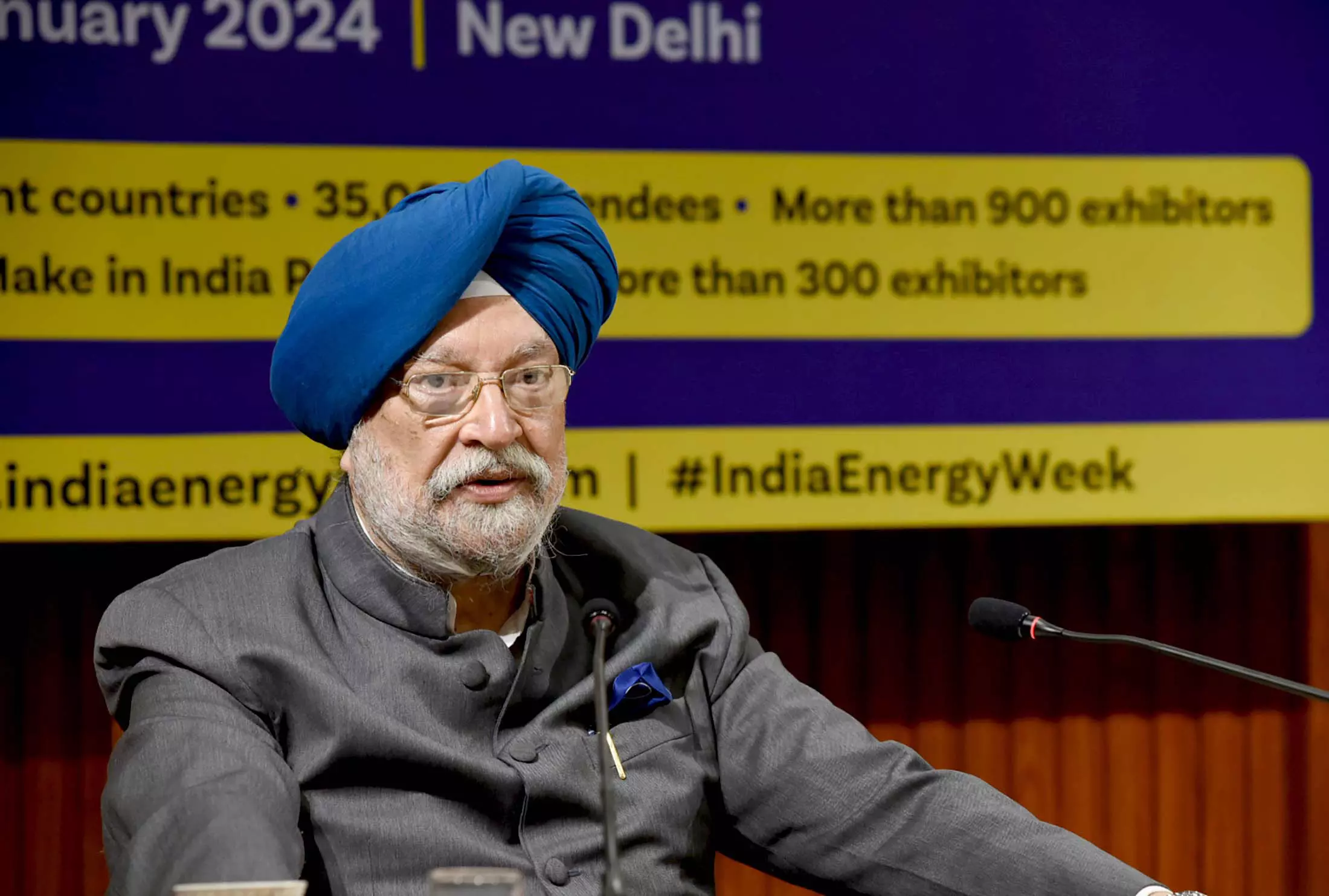Govt making constant efforts to keep CNG prices under control: Oil minister Puri
In April 2023, the govt decided to delink the Indian gas prices from four international hubs based in US, Canada, UK and Russia, and align them to the Indian crude basket. This move reduced domestic gas prices
image for illustrative purpose

New Delhi: The government is making constant efforts to bring the prices of compressed natural gas under control and has delinked Indian gas prices from four international hubs based in the US, Canada, UK and Russia, and aligned them to the Indian crude basket, Oil minister Hardeep Puri informed the Rajya Sabha.
Responding to supplementary during the Question Hour, he said the government is encouraging the consumption of compressed natural gas as it is relatively a cleaner fuel. "The government has ensured that while global prices were witnessing turbulence, massive increases and shortfall. Lockdown prices do not reflect reality prices, as during the lockdown crude prices came down to $19.56 per barrel and then shot up to $128 and $130 per barrel.
"In April 2023, we rationalised the CNG prices and as a result, while global prices shot up, the domestic gas price was much lower, 83 per cent lower," the minister told the upper house.
"It is our constant effort to provide more gas for domestic cooking purposes and for the transport sector and we are committed to making the green transition," Puri said.
“Our trilemma is to ensure availability, affordability and sustainability and the increased gas which is being provided will raise the gas available to the transport sector," he noted.
On the matter of encouraging people to switch to CNG vehicles, Puri said there is an autonomous process of transition taking place. "If you look at the number of CNG vehicles at the time when international CNG prices went up, there was an apprehension that people would stop buying CNG vehicles, but that didn't happen. The very fact that we can make natural gas available to the transportation sector at reasonable prices, not linked to global market prices, that itself acts as an incentive.
"The same is also happening with electric vehicles. But the issue of giving incentives, I think the most important incentive that you can give is to make the energy which these vehicles consume, available in plenty. We are taking our overall use of gas in our energy matrix from 6 per cent to 15 per cent," he said.
He said in April 2023, the government took some far-reaching reforms by deciding to delink the Indian gas prices from four international hubs based in the US, Canada, the UK and Russia, and we aligned them to the Indian crude basket, in other words, 10 per cent of the Indian crude basket.
"As a result of this, we were able to fix prices every month and the price of gas has now a floor and a ceiling from $4 MMBTU to 6.5 MMBTU. This immediately resulted in the price of gas coming down drastically. We have also increased the number of CNG stations from 738 in 2014 to 6,159, a growth of 735 per cent," he said.
The population covered by CGD has gone up to 98 per cent from 12.81 in 2014, this is a growth of 665 per cent, the minister informed.
Asked whether the disturbances in the Red Sea route have affected crude and gas prices, he said, "So far as the developments in the Red Sea are concerned, we have a certain degree of anxiety as these are non-state actors affecting supply lines...I say with my fingers crossed, we are reasonably confident that given the goodwill around, these factors making for anxiety will be contained and we do not have an all-out escalation."
If an all-out escalation of hostilities takes place and there is disruption, then there will be total supply chain disruption, then there will be concerns, he noted. If there is no escalation, then this is a "manageable situation", he also said.
In his written reply, the minister said to protect the consumers from the high volatility of international gas prices, major reforms were undertaken by the Ministry of Petroleum & Natural Gas in domestic gas pricing vide revised guidelines issued on 7 April 2023.
"The reforms aimed at rationalising the earlier applicable international gas hub-based pricing. Before this, the pricing was based on the weighted average of 4 international indices (namely US-Henry Hub, Canadian Alberta Hub, UK NBP and Russian Gas Market).
"The revised guidelines apply to domestic gas produced from nomination fields of ONGC/OIL, New Exploration Licensing Policy (NELP) blocks and pre-NELP blocks, where the Production Sharing Contract (PSC) provides for Government's approval of prices.
"The revised guidelines provide the price of such natural gas to be 10% of the monthly average of Indian Crude Basket, to be notified on a monthly basis.
For the gas produced by ONGC & OIL from their nomination blocks, the price has been made subject to a floor and a ceiling of $4.0/MMBTU & $6.5/MMBTU respectively," Puri said.
"The price of natural gas in the international market is based on the demand-supply scenario, geo-political issues and various other market conditions. It is difficult to make predictions about these prices, especially amid ongoing volatility. The government of India is closely monitoring global energy markets as well as potential energy supply disruptions as a fall-out of the evolving geopolitical situation," the minister also said in his written reply.

